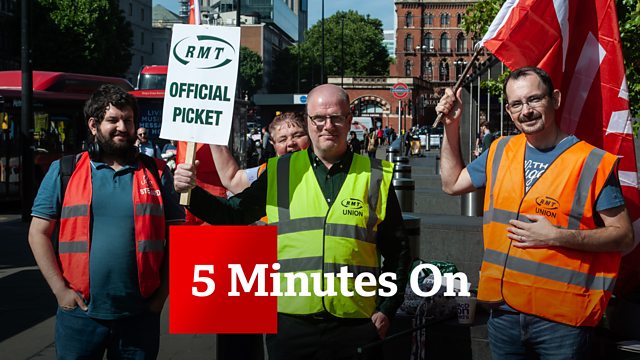The rail strikes explained
The RMT called the strikes over job cuts, pay and conditions. The union says an offer of a 2% pay rise, with the possibility of a further 1%, was "unacceptable".
The rail strikes are causing widespread disruption to millions of commuters across England, Scotland and Wales. Passengers are being advised not to travel unless it is essential, as around 40,000 members of the Rail, Maritime and Transport (RMT) union at Network Rail and 13 train operators have walked out. Only 20% of trains are running after staff walked out and many areas have no trains at all. There are also strikes affecting London Underground stations. Boris Johnson has said commuters must "stay the course" during the rail strikes, as he urged rail bosses and unions to agree on a deal. Union RMT has called the strikes over three days due to "aggressive" cuts to jobs, conditions, pay and pensions. Strikes are set to continue on Thursday and Saturday. For 5 Minutes On, the 大象传媒's Ben King answers explains the dispute, and offers advice to those whose journeys are affected.
Image Credit: Guy Smallman / Getty Images

